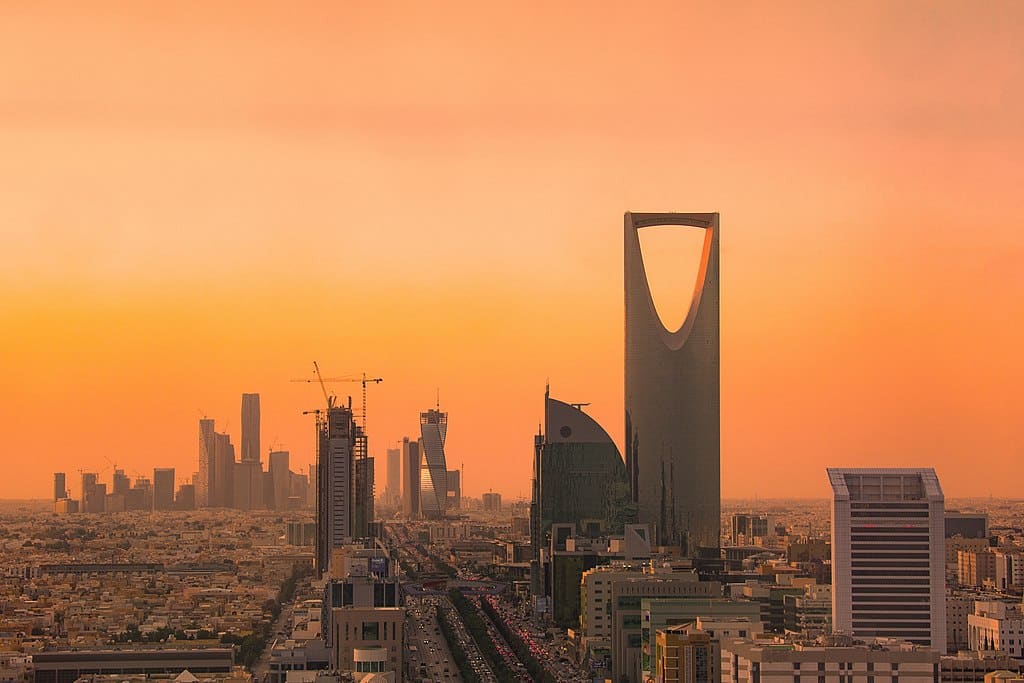
Saudi Arabia, a key country in regional and global geopolitics, has changed and continues to change at breakneck speed in social, cultural and economic –albeit not political– terms. Many women drive and no longer veil their faces (they do still conceal their bodies, although others may be seen with their hair uncovered); they also attend football matches, the cinema and music concerts, which not long ago was unheard of. While there is a very great deal further to go in this direction, amid a certain degree of conservative backlash, the country is starting to catch up with other monarchies in the Gulf, a region that tends to fall off Spain’s diplomatic radar for anything other than trade. How much longer must we wait before Riyadh or Jeddah gets a Cervantes Institute, which as a matter of fact would be self-financing in this wealthy country?
The main reason for the reforms instigated by Crown Prince Mohammad bin Salman (MbS, aged 34 and the son, not the brother, of the current king, which is a further change) is the need to find work and decent incomes for young people, who unlike their predecessors do not receive funds from a state now burdened by a deficit and a much larger population. Although no elections are held and political reform is not in the offing, public opinion does matter and MbS seeks to garner the support of young people, especially women, and to offset a Saudi-style Arab Spring. Up to 70% of the Saudi population is under 35, and is better educated than ever, with women accounting for 58% of university students. Many with whom this author has spoken support the general direction of travel. More and more women have jobs and live independently. Professional Saudi women are highly valued by foreign companies because they are perceived as more motivated and dynamic than their male counterparts.
The country and its inhabitants (numbering over 33 million, a third of whom are foreigners) can no longer live on its assets, and although the land has more than a century’s worth of oil reserves left, consumption of oil is going to fall, and since it is already an economy in the red, it has to diversify. To this end it is opening up to (alcohol-free) tourism, entertainment and the cultural sector –all of which generate jobs– as well as new technologies.
At Neom, on the Red Sea, there are plans afoot for a kind of (automated) Silicon Valley. However, according to Fatmah Baothman, a Jeddah-based professor and the first woman in Saudi Arabia with a PhD in artificial intelligence (AI), and the President of her country’s AI society, despite some notable progress, there is still a lack of awareness of the digital revolution and AI among many companies, engineers and doctors. But boosting AI is part of MbS’s Vision 2030, albeit with its own cultural focus. AI is being incorporated into many degree courses. At the Centre of Smart Robotics Research at King Saud University, by way of another example, substantial efforts are being put into robots capable of communicating with deaf-mute people using Arabic sign language. There is money to fund all this, but not as much as before. That said, with the stock exchange floatation of a small part (1.5%) of its vast oil company, Aramco, the state has obtained almost US$30 billion (€27 billion).
It is against this background that the Saudis take over the presidency of the G20 in 2020, something the government wants to use to draw its reforms to the world’s attention. Priorities? At a recent meeting of the T20 (the network of think tanks that puts forward proposals and counts the Elcano Royal Institute among its members) the Saudi Sherpa for the G20, Fahad Almubarak, classified the 22 priorities set by his government into three large areas, closely connected to the domestic reform agenda (and with global needs). The first is ‘empowering people’ (women and youth, ensuring no-one is left behind and protecting health, among others); second is safeguarding the planet (energy, steps to tackle climate change, water and sustainability); and third is shaping the new frontier, aimed at addressing the long-term challenges of digitalisation, smart cities, etc. All this is included in the document setting out the G20 agenda.
Naturally, the G20 will continue to address a series of pressing issues such as trade and the reform of the World Trade Organisation. One word on the lips of all the Saudi organisers at the first T20 meeting was multilateralism. This is not something likely to please Donald Trump (Saudi Arabia was his first foreign destination as head of state), who will arrive at the G20 summit, to be held in Riyadh on 21 and 22 November, either strengthened or a lame duck, depending on the outcome of the election a few days beforehand. But apart from the summit itself there will also be a host of ministerial meetings, including one on the fight against corruption.
Saudi priorities at the moment focus on domestic reforms and investment. Thus the US assassination of the Iranian General Qasem Soleimani by drone strike, despite the hatred he aroused, cannot have gone down well in Riyadh, fearful as it is of an escalation in the region; this despite the fact that Iran is enemy number one (compounded by the fear of Tehran arming itself with nuclear weapons). Saudi Arabia is trying to reduce its role in the ruinous war in Yemen. The Saudis do not disguise the fact that they feel threatened –‘threat, not risk’, says one Saudi researcher– and not only by Iran; also by Turkey, a longstanding enemy, and its being surrounded by a host of failed states, from Yemen to Iraq and Syria.
There is no prospect of political reform, apart from the line of succession to the throne. This is an absolute monarchy, and various interventions are taking an enormous international and even domestic toll on the regime’s reputation, as well as inviting an evaluation of the acts themselves: the assassination of the journalist Jamal Khashoggi in the Saudi consulate in Istanbul, the jailing of activists campaigning for women’s rights, and the surveillance software allegedly transmitted via WhatsApp by MbS himself to the phone of the Amazon founder and CEO, Jeff Bezos. Saudi Arabia has a great deal at stake with the G20, both domestically and globally. And beyond it too. When the wheels of social change are put in motion, they also end up being political.


